Tag: Neurons
-
Health
Turning science on its head
Myelin, the electrical insulating material in the body long known to be essential for the fast transmission of impulses along the axons of nerve cells, is not as ubiquitous as thought, according to new work led by Professor Paola Arlotta.
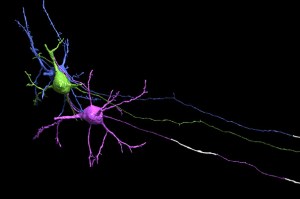
-
Health
Deconstructing motor skills
Harvard researchers have found that the brain uses two largely independent neural circuits to learn spatial and temporal aspects of complex motor skills.
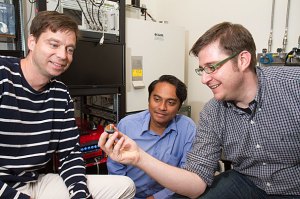
-
Campus & Community
First Santiago Ramón y Cajal Professor is named
Jeff Lichtman, the Jeremy R. Knowles Professor of Molecular and Cellular Biology, has been appointed as the first Ramón y Cajal Professor of Arts and Sciences.
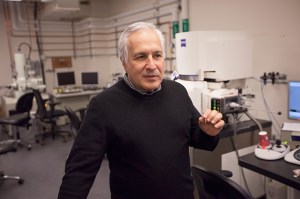
-
Health
Sophisticated worms
In a new study of worm locomotion, researchers show that a single type of motor neuron drives an entire sensorimotor loop.

-
Health
Link found between ALS and SMA
Scientists have long known the main proteins that lead to the development of amyotrophic lateral sclerosis (ALS) and spinal muscular atrophy (SMA), respectively. Now research shows that these two motor neuron diseases likely share a pathway that leads to the development of disease.
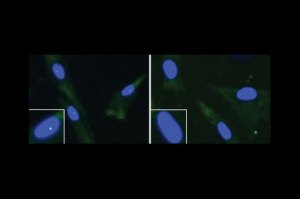
-
Health
Controlling behavior, remotely
Researchers have been able to take control of tiny, transparent worms by manipulating neurons in their brains, using precisely targeted pulses of laser light.

-
Health
The growing brain
As reported on June 7 in the journal Neuron, a team of researchers led by Professor Jeff Lichtman has found that just days before birth mice undergo an explosion of neuromuscular branching. At birth, the research showed, some muscle fibers are contacted by as many as 10 nerve cells. Within days, however, all but one…
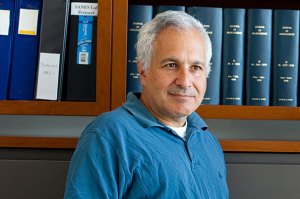
-
Health
Following the worm
Harvard research examining the nervous system of Caenorhabditis elegans — tiny, transparent worms — suggest a path for investigations that may shed light on disorders such as schizophrenia.

-
Health
Clues to addiction
Harvard scientists have developed the fullest picture yet of how neurons in the brain interact to reinforce behaviors that range from learning to drug use, a finding that could open the door to new treatments for addiction.
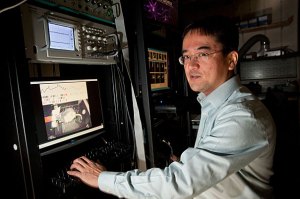
-
Health
Struttin’ its stuff
Harvard researchers have found that a tiny motor inside of us called dynein, one tasked with shuttling vital payloads throughout the cell’s intricate highway infrastructure, staggers, which is quite contrary to the regular, efficient poise of its fellow motors.
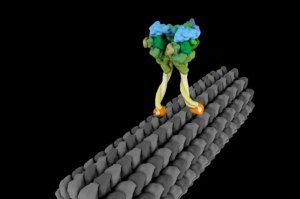
-
Health
Guiding lights
In a scientific first that could shed light on how signals travel in the brain and how learning alters neural pathways, scientists at Harvard have created genetically altered neurons that light up as they fire. The work may also lead to speedier drug development.
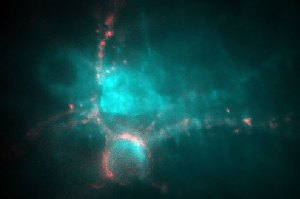
-
Science & Tech
Neurons in youth
A group of researchers is working to map how the brain is wired in an effort to pinpoint the causes of — and potential treatments for — schizophrenia, autism, and a host of other disorders.
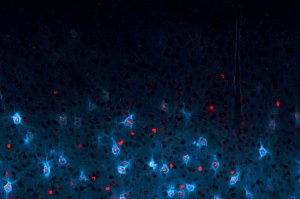
-
Health
From skin cells to motor neurons
Harvard stem cell researchers have succeeded in reprogramming adult mouse skin cells directly into the type of motor neurons damaged in amyotrophic lateral sclerosis, best known as Lou Gehrig’s disease, and spinal muscular atrophy.

-
Health
Web-crawling the brain
Researchers in the Department of Neurobiology at Harvard Medical School have developed a technique for unraveling these masses. Through a combination of microscopy platforms, researchers can crawl through the individual connections composing a neural network, much as Google crawls web links.
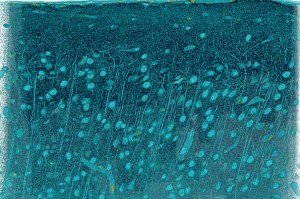
-
Arts & Culture
Controlling long-term memory
Harvard University biologists have identified a molecular pathway active in neurons that interacts with RNA to regulate the formation of long-term memory in fruit flies. The same pathway is also found at mammalian synapses, and could eventually present a target for new therapeutics to treat human memory loss.


